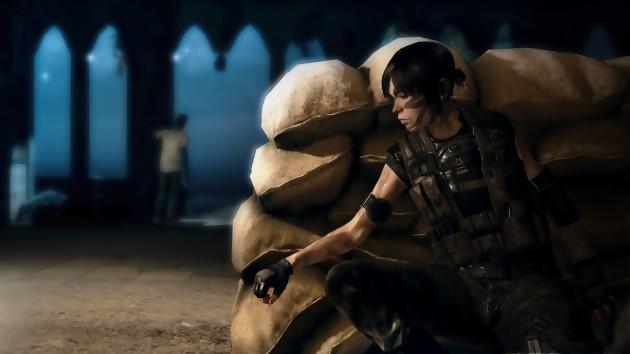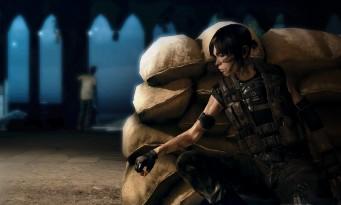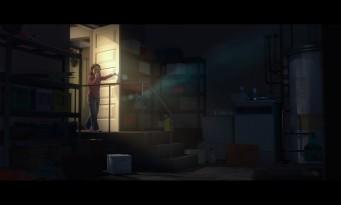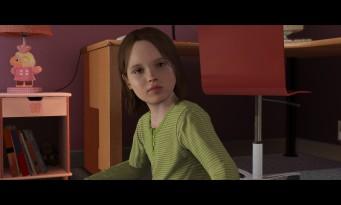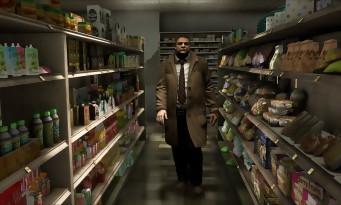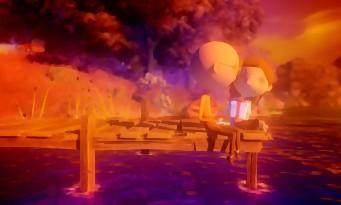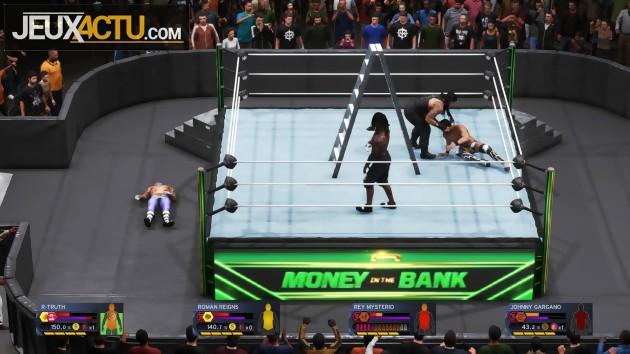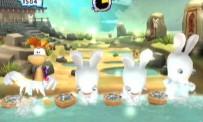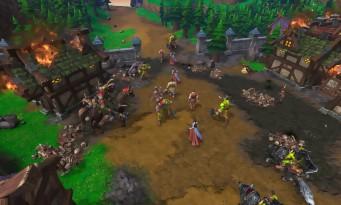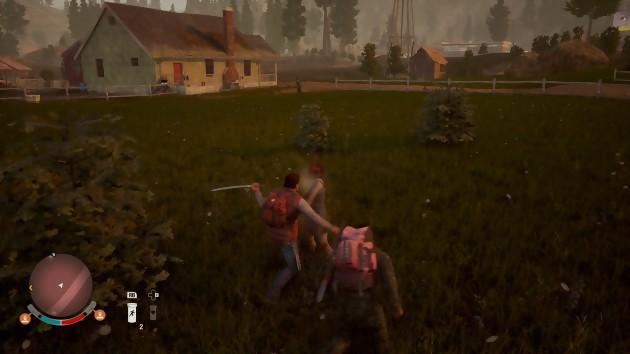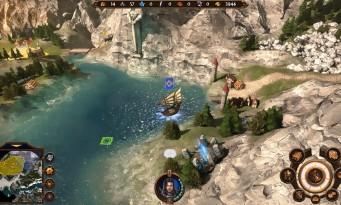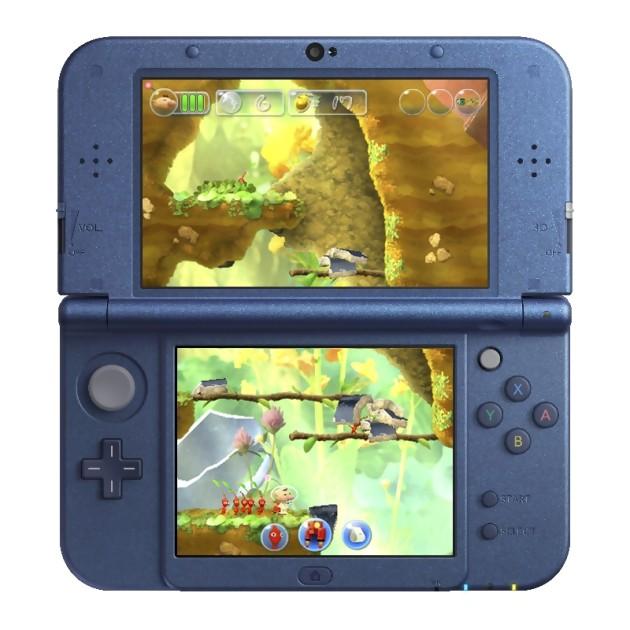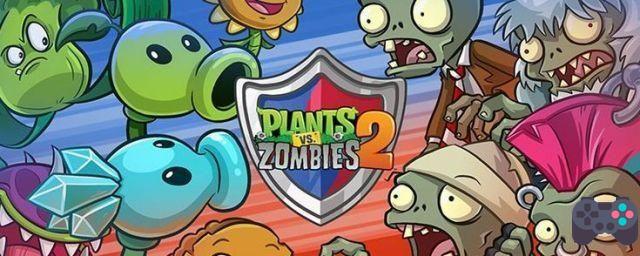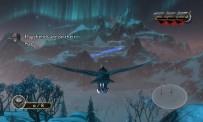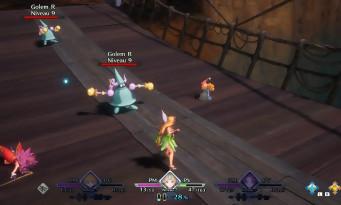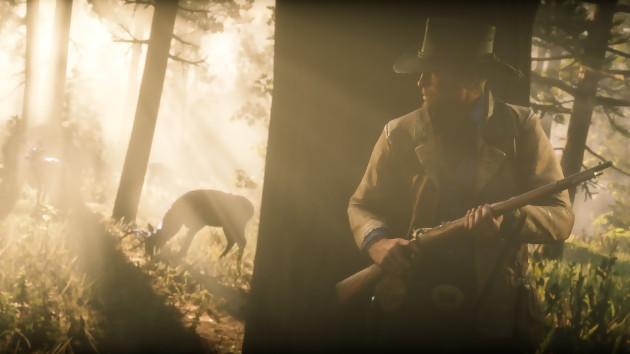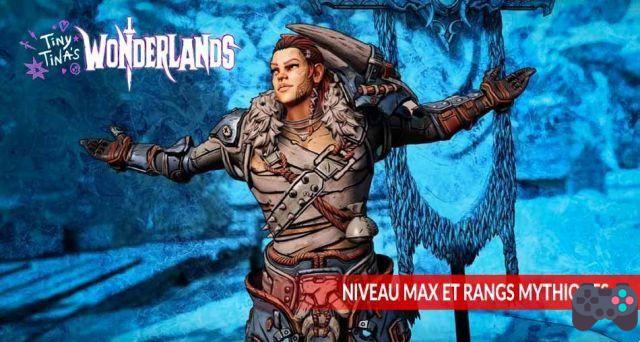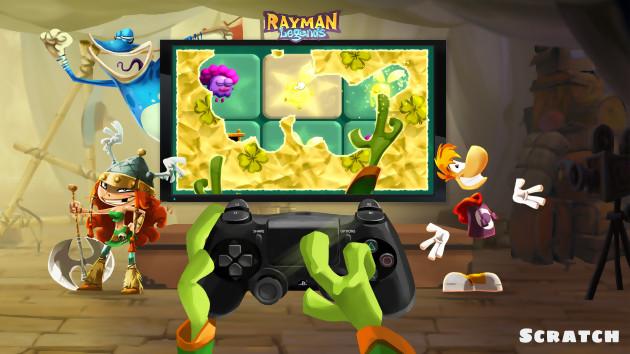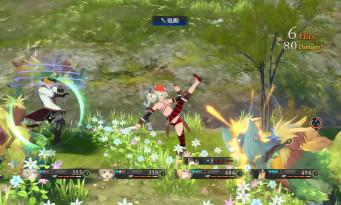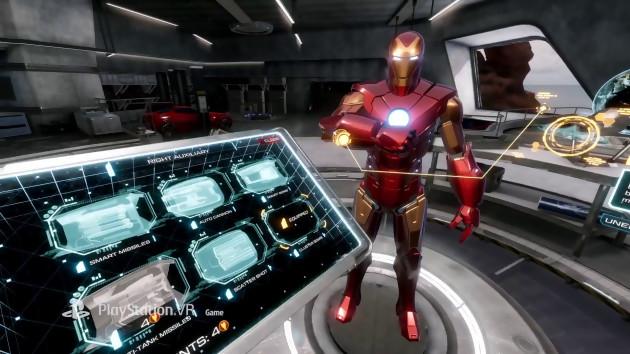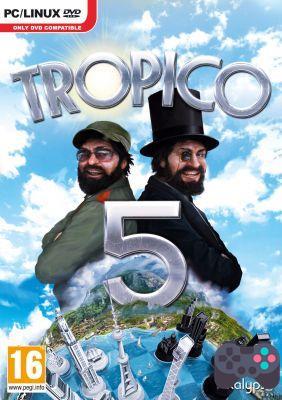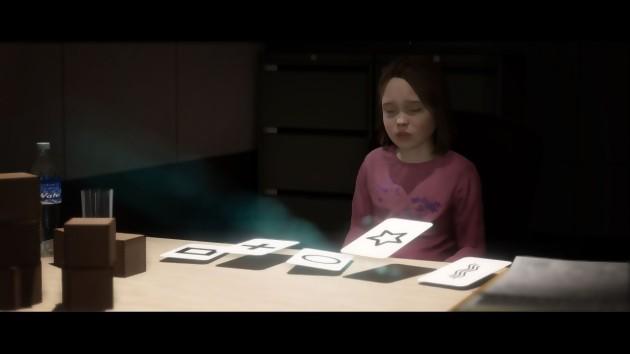 Quantic Dream and Sony have therefore chosen, with Beyond, to go further in the cinematographic trip which was already that of Heavy Rain and even of Fahrenheit before it. However, don't expect a well-crafted thriller this time. The French studio has chosen to turn to something different for the scenario of this new title. While Heavy Rain offered to follow the progress of the investigation around the Origami Killer, Beyond: Two Souls first offers players a life experience: that, exceptional, of Jodie Holmes, a young woman linked since birth to an invisible and mysterious entity named Aiden. And the expression "life experience" is not overused since the game makes us embody Jodie in about thirty passages from the beginning of her existence, from her childhood to adulthood, obviously passing through her adolescence. Of course, and as the title of the software bluntly indicates, it is his close and unexplained link with Ayden which is at the heart of the adventure insofar as it will shape the course of his life, triggering a series of events particularly strong in emotion, and to decide its destiny. At least, in part, because that's where you'll come into play...
Quantic Dream and Sony have therefore chosen, with Beyond, to go further in the cinematographic trip which was already that of Heavy Rain and even of Fahrenheit before it. However, don't expect a well-crafted thriller this time. The French studio has chosen to turn to something different for the scenario of this new title. While Heavy Rain offered to follow the progress of the investigation around the Origami Killer, Beyond: Two Souls first offers players a life experience: that, exceptional, of Jodie Holmes, a young woman linked since birth to an invisible and mysterious entity named Aiden. And the expression "life experience" is not overused since the game makes us embody Jodie in about thirty passages from the beginning of her existence, from her childhood to adulthood, obviously passing through her adolescence. Of course, and as the title of the software bluntly indicates, it is his close and unexplained link with Ayden which is at the heart of the adventure insofar as it will shape the course of his life, triggering a series of events particularly strong in emotion, and to decide its destiny. At least, in part, because that's where you'll come into play...
Enter the void
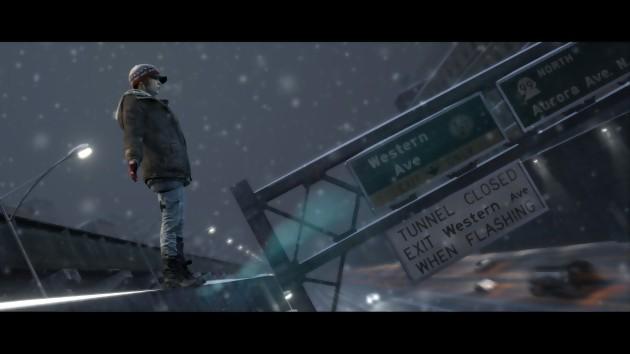 Each of the episodes of the game tells you a piece of Jodie's life, at a particular moment, a turning point, a decisive moment for one reason or another (and it will often take you time to understand why). Each of them is actually a piece of a large puzzle that will lead you to understand the nature of the link that exists between Jodie and Aiden but also the trajectory of the young woman, who has gone from being a little girl reserved for the imagination. overflowing to public enemy number 1. The narration of the software is also without a doubt one of its primary strengths: Beyond gives us the chapters of Jodie's life without respecting the chronological sequence; we go from one scene to another, without any link between them, except that we can know more or less at what moment in Jodie's life they take place thanks to a kind of frieze. Which doesn't mean the game's writers did them in any order. The course of the game is meticulously calculated to make you want to understand the why and how, to play point B between point A and point C. As with Heavy Rain, we want at all costs to illuminate the shadowy areas that surround the rather extreme situations in which Jodie finds herself, and this as quickly as possible. The other advantage of this system is to regularly change the atmosphere, to constantly renew the background. Night and day, city, desert, laboratory, residential area, we go from rooster to donkey and we like it. And it's hard to let go of the controller and we continue to play.
Each of the episodes of the game tells you a piece of Jodie's life, at a particular moment, a turning point, a decisive moment for one reason or another (and it will often take you time to understand why). Each of them is actually a piece of a large puzzle that will lead you to understand the nature of the link that exists between Jodie and Aiden but also the trajectory of the young woman, who has gone from being a little girl reserved for the imagination. overflowing to public enemy number 1. The narration of the software is also without a doubt one of its primary strengths: Beyond gives us the chapters of Jodie's life without respecting the chronological sequence; we go from one scene to another, without any link between them, except that we can know more or less at what moment in Jodie's life they take place thanks to a kind of frieze. Which doesn't mean the game's writers did them in any order. The course of the game is meticulously calculated to make you want to understand the why and how, to play point B between point A and point C. As with Heavy Rain, we want at all costs to illuminate the shadowy areas that surround the rather extreme situations in which Jodie finds herself, and this as quickly as possible. The other advantage of this system is to regularly change the atmosphere, to constantly renew the background. Night and day, city, desert, laboratory, residential area, we go from rooster to donkey and we like it. And it's hard to let go of the controller and we continue to play.
As for Heavy Rain, we want at all costs to illuminate the gray areas surrounding the rather extreme situations in which Jodie finds herself, and this as quickly as possible.
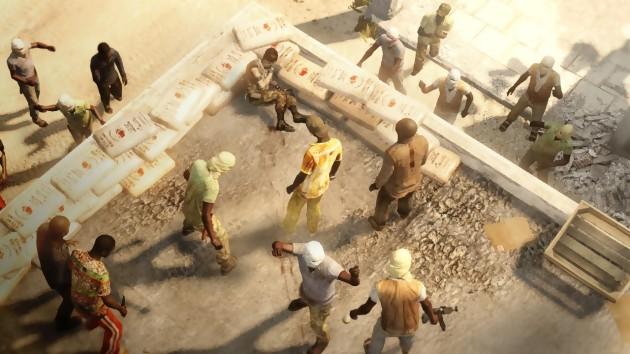 As you will have understood, the goal of Beyond: Two Souls is above all to tell this extraordinary story. With this game, David Cage gets even closer to the cinema he admires so much and doesn't even hide it anymore. The names of Ellen Page or Willem Dafoe in the credits, among others (we would like to highlight Kadeem Hardison's performance as well, exceptional in his role as Cole Freeman), are indeed not just bling-bling, powder to the eyes, since thanks to the facial capture technology developed by Quantic Dream, they have been modeled with great fidelity, all in finesse, in order to bring their quality as actors. Beyond is probably the best in this area on PS3, as well as in lip synchronization, and the staging does not hesitate to multiply the close-ups, in particular in the most intimate scenes, with a game of actors who can really take you to the guts. Everything remains very clean visually, insofar as most of the sets are small. However, we regret a certain unequal treatment between the protagonists and certain secondary characters (robot approaches, more or less detailed animations, etc.). Beyond that, it's all of Beyond's staging that leans towards the cinema, with countless cut-scenes, camera angles that smell like popcorn and moments of intense intensity. rare emotional, like the chapter in which Jodie is taken in by a group of homeless people. Probably the best part of the game, too bad it was broadcast on the Web...
As you will have understood, the goal of Beyond: Two Souls is above all to tell this extraordinary story. With this game, David Cage gets even closer to the cinema he admires so much and doesn't even hide it anymore. The names of Ellen Page or Willem Dafoe in the credits, among others (we would like to highlight Kadeem Hardison's performance as well, exceptional in his role as Cole Freeman), are indeed not just bling-bling, powder to the eyes, since thanks to the facial capture technology developed by Quantic Dream, they have been modeled with great fidelity, all in finesse, in order to bring their quality as actors. Beyond is probably the best in this area on PS3, as well as in lip synchronization, and the staging does not hesitate to multiply the close-ups, in particular in the most intimate scenes, with a game of actors who can really take you to the guts. Everything remains very clean visually, insofar as most of the sets are small. However, we regret a certain unequal treatment between the protagonists and certain secondary characters (robot approaches, more or less detailed animations, etc.). Beyond that, it's all of Beyond's staging that leans towards the cinema, with countless cut-scenes, camera angles that smell like popcorn and moments of intense intensity. rare emotional, like the chapter in which Jodie is taken in by a group of homeless people. Probably the best part of the game, too bad it was broadcast on the Web...
beyond the video game
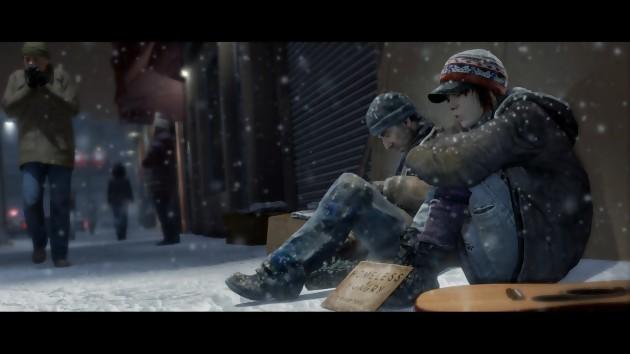 Jodie is the main playable character, in a classic third-person view, regardless of the age at which you play. Each game scene takes place in a fairly restricted environment, with which you can choose to interact or not, at the predetermined places to do so. Yes, even if we can move our heroine quite freely in the levels, the gameplay of Beyond remains very interventionist, which could, as for Heavy Rain, disturb some. The price to pay for a particular story? We will see this later. To put it simply, you have a set of actions that constitute the red thread of the chapter, which you can finish by going to the essentials. But you can choose, if you wish, to interact with other objects or characters around you, which may give you more information about the situation, or even a different angle of attack. A white dot appears where there is an interaction: door to open, object to grab, action to trigger. A simple orientation of the right joystick is enough to make Jodie act. No, contrary to what David Cage had claimed, the QTEs have not disappeared, the game is even armored with them. Let's say they're slightly camouflaged now. The melee combat system is a clear example of this: each time Jodie strikes or protects herself, a bullet time is triggered and you must then follow the direction of her movement with the right stick. No indication on the screen, but the concept remains the same.
Jodie is the main playable character, in a classic third-person view, regardless of the age at which you play. Each game scene takes place in a fairly restricted environment, with which you can choose to interact or not, at the predetermined places to do so. Yes, even if we can move our heroine quite freely in the levels, the gameplay of Beyond remains very interventionist, which could, as for Heavy Rain, disturb some. The price to pay for a particular story? We will see this later. To put it simply, you have a set of actions that constitute the red thread of the chapter, which you can finish by going to the essentials. But you can choose, if you wish, to interact with other objects or characters around you, which may give you more information about the situation, or even a different angle of attack. A white dot appears where there is an interaction: door to open, object to grab, action to trigger. A simple orientation of the right joystick is enough to make Jodie act. No, contrary to what David Cage had claimed, the QTEs have not disappeared, the game is even armored with them. Let's say they're slightly camouflaged now. The melee combat system is a clear example of this: each time Jodie strikes or protects herself, a bullet time is triggered and you must then follow the direction of her movement with the right stick. No indication on the screen, but the concept remains the same.
No, the heart of Beyond: Two Souls is elsewhere than in its gameplay, it must be said. It's in her choices, in the impact you're going to have on Jodie's story by making such and such a decision at a given moment. This is where the software reveals its full narrative potential."
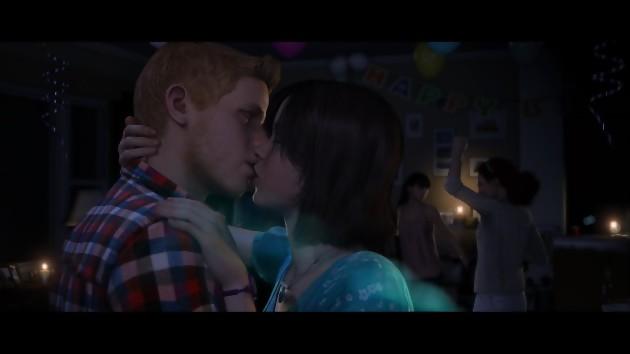 But there is a second playable character, and it is Aiden, the famous invisible and mysterious entity linked to Jodie and who never leaves her. It is possible to control it with a simple press of the Triangle button, at any time in the game. Or almost, since here again, Beyond is extremely scripted, and certain scenes prevent you from taking control of Ayden while others force you to… We then go into first person view, in a kind of ghost mode (for FPS fans), floating in the air and crossing walls, while remaining at a limited distance of Jodie, the link which unites them not being extensible (which is very practical for reasons of level design). Aiden's role basically boils down to giving Jodie a hand when she is faced with an obstacle: moving objects that are too heavy, scaring arrogant teenagers by moving everything that is within reach, removing a opponent or even take control of it. Again, you will have to accept that your freedom as a player will be particularly curtailed, since all these possibilities are only available at certain times. You won't be able to kill all the characters present in a chapter for fun and for a simple reason: the game has no Game Over. Quantic Dream took a bet on bouncing back from anything that happens to you, including if that's what Jodie is absolutely trying to avoid, like getting arrested by law enforcement. No endgame screen, the scene continues and you will have to look for another exit door. We then understand that to stay on track, we are not allowed to do anything and everything, even if it is sometimes quite frustrating.
But there is a second playable character, and it is Aiden, the famous invisible and mysterious entity linked to Jodie and who never leaves her. It is possible to control it with a simple press of the Triangle button, at any time in the game. Or almost, since here again, Beyond is extremely scripted, and certain scenes prevent you from taking control of Ayden while others force you to… We then go into first person view, in a kind of ghost mode (for FPS fans), floating in the air and crossing walls, while remaining at a limited distance of Jodie, the link which unites them not being extensible (which is very practical for reasons of level design). Aiden's role basically boils down to giving Jodie a hand when she is faced with an obstacle: moving objects that are too heavy, scaring arrogant teenagers by moving everything that is within reach, removing a opponent or even take control of it. Again, you will have to accept that your freedom as a player will be particularly curtailed, since all these possibilities are only available at certain times. You won't be able to kill all the characters present in a chapter for fun and for a simple reason: the game has no Game Over. Quantic Dream took a bet on bouncing back from anything that happens to you, including if that's what Jodie is absolutely trying to avoid, like getting arrested by law enforcement. No endgame screen, the scene continues and you will have to look for another exit door. We then understand that to stay on track, we are not allowed to do anything and everything, even if it is sometimes quite frustrating.
life experiences
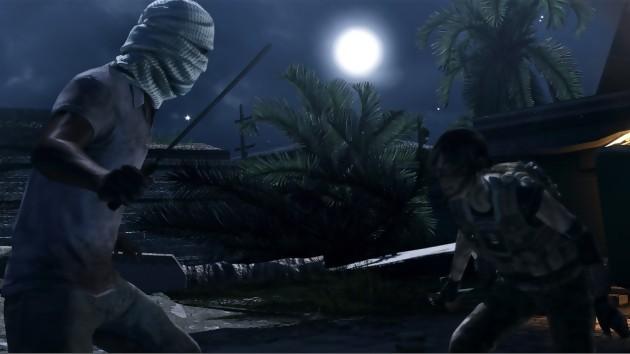 It must be understood that the goal of Beyond is not to offer ultra-technical gameplay, requiring skill or experience. Accessibility was the key word, David Cage said, his goal is to offer video games to everyone, and especially to those who are afraid of it in normal times. We must also highlight the excellent idea of creating a free application on Android and iOS platforms that allows you to use your tablet or smartphone as a gamepad, with simplified touch controls. It works perfectly and it allows those who only have one controller to play with two people, or simply people who are not used to console controllers to try the adventure anyway (ideal for involving your grandma or girlfriend) . We can consider this desire for accessibility as a bridle, which prevented the development teams from inserting any challenge, the only difficulty being to understand what to do next! In the same way, certain features would have deserved a slight deepening, such as the infiltration sequences: quite pleasant to play, but too linear and repetitive.
It must be understood that the goal of Beyond is not to offer ultra-technical gameplay, requiring skill or experience. Accessibility was the key word, David Cage said, his goal is to offer video games to everyone, and especially to those who are afraid of it in normal times. We must also highlight the excellent idea of creating a free application on Android and iOS platforms that allows you to use your tablet or smartphone as a gamepad, with simplified touch controls. It works perfectly and it allows those who only have one controller to play with two people, or simply people who are not used to console controllers to try the adventure anyway (ideal for involving your grandma or girlfriend) . We can consider this desire for accessibility as a bridle, which prevented the development teams from inserting any challenge, the only difficulty being to understand what to do next! In the same way, certain features would have deserved a slight deepening, such as the infiltration sequences: quite pleasant to play, but too linear and repetitive.
...once the game is over, to be able to measure how much the scenario can be changed, by restarting their games at different times just to play on the variables."
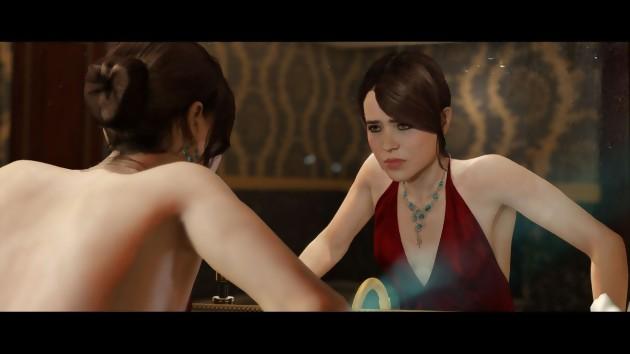 No, the heart of Beyond: Two Souls is elsewhere than in its gameplay, it must be said. It's in her choices, in the impact you're going to have on Jodie's story by making such and such a decision at a given moment. This is where the app reveals its full narrative potential. Beyond its 23 endings, which is already colossal in itself, Beyond multiplies the storyline branches, the actions with late repercussions. You will not always realize (not often even) the importance of a choice, what it will change later in the course of the game and in the new decisions to be made. But for many, they will be a game-changer, giving you or taking away gameplay possibilities, options, scenes, points of view and may even affect the life and death of all, yes all characters in the game. It's hard to go any further without spoilers, but it's obvious that as a player, your choices and actions represent a kind of meta-gameplay. The real game is there. And those who have seized it should leave their cake in their console once the game is over, to be able to measure to what degree the scenario can be modified, by restarting their games at different times simply to play on the variables. Unearthing details that had remained in the shadows, trying to find happiness by all means or making Jodie endure a life of martyrdom: so many possibilities open to you, like a kind of gigantic book of which you are the hero.
No, the heart of Beyond: Two Souls is elsewhere than in its gameplay, it must be said. It's in her choices, in the impact you're going to have on Jodie's story by making such and such a decision at a given moment. This is where the app reveals its full narrative potential. Beyond its 23 endings, which is already colossal in itself, Beyond multiplies the storyline branches, the actions with late repercussions. You will not always realize (not often even) the importance of a choice, what it will change later in the course of the game and in the new decisions to be made. But for many, they will be a game-changer, giving you or taking away gameplay possibilities, options, scenes, points of view and may even affect the life and death of all, yes all characters in the game. It's hard to go any further without spoilers, but it's obvious that as a player, your choices and actions represent a kind of meta-gameplay. The real game is there. And those who have seized it should leave their cake in their console once the game is over, to be able to measure to what degree the scenario can be modified, by restarting their games at different times simply to play on the variables. Unearthing details that had remained in the shadows, trying to find happiness by all means or making Jodie endure a life of martyrdom: so many possibilities open to you, like a kind of gigantic book of which you are the hero.
